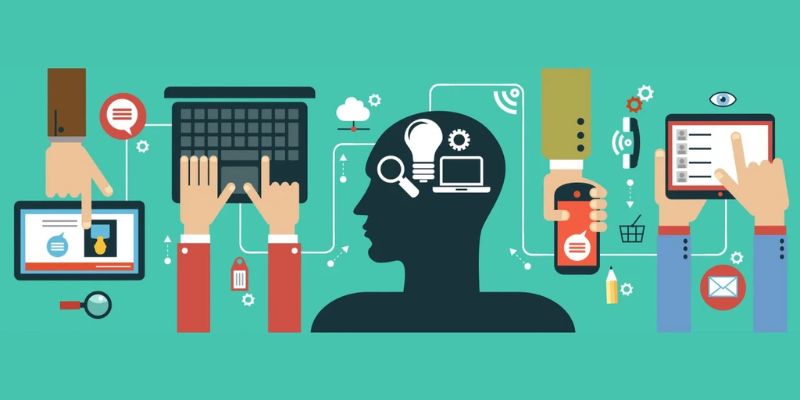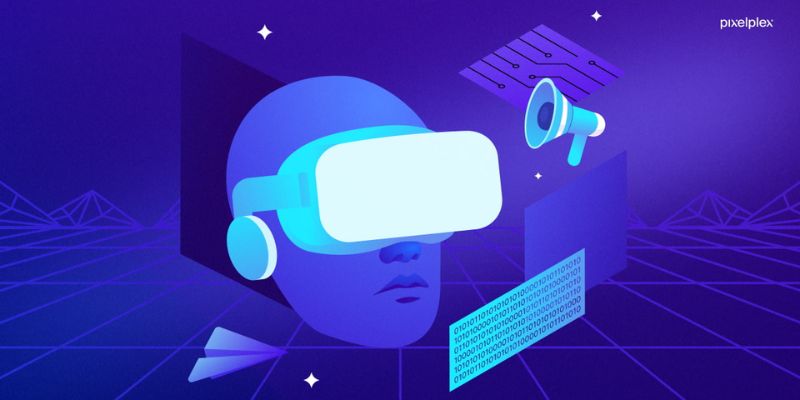The paradigm of work has undergone a seismic shift, accelerated by global events and technological advancements. As we look ahead, understanding the profound implications for the future of remote work in digital industries is crucial for businesses and professionals alike. This in-depth analysis delves into the trends, challenges, and opportunities shaping how we will collaborate, innovate, and thrive in an increasingly distributed work environment. We explore how digital industries are uniquely positioned to embrace this evolution, transforming traditional boundaries and fostering new models of productivity and engagement.
Technological Drivers Reshaping Remote Work

The future of remote work in digital industries is profoundly shaped by technological advancements. These innovations foster highly efficient, integrated distributed teams, moving beyond basic connectivity. Cloud computing, artificial intelligence, and augmented reality enable seamless interactions, transcending geographical barriers.
Immersive Collaboration Tools
Virtual and augmented reality redefine remote collaboration. These immersive technologies create shared virtual workspaces, boosting presence and engagement. Digital twin technology allows remote monitoring of physical assets, expanding remote work into engineering. This facilitates intuitive teamwork across distances.
AI-Driven Productivity in Digital Industries
Artificial intelligence is a cornerstone of remote work productivity. Beyond smart scheduling, AI tools provide predictive analytics and personalized learning. Automation of routine tasks frees human talent, letting digital industries focus on strategic initiatives. This impacts the future of work and automation on jobs.
Securing Remote Digital Workplaces
Robust cybersecurity is paramount for remote work. Cloud infrastructure requires advanced protection, especially as cybersecurity challenges evolve. Zero Trust architectures and AI-powered threat detection safeguard sensitive data. SASE solutions ensure reliable, protected operations for distributed teams.
Evolving Workplace Models and Employee Expectations

The future of remote work in digital industries is fundamentally reshaping traditional workplace models. The rigid 9-to-5 office structure is giving way to flexible, hybrid, and fully remote arrangements. This transformation stems from a collective desire for improved work-life balance and broader talent acquisition. Businesses also benefit from reduced operational costs.
The Rise of Hybrid Work Models
Hybrid work models are becoming the new standard. These models blend in-office collaboration with remote flexibility. They offer employees the best of both worlds, fostering engagement and autonomy. This approach is crucial for attracting and retaining top talent in digital industries.
Prioritizing Outcomes and Well-being
Employee expectations now heavily prioritize results over strict hours. This shift cultivates a culture of trust and accountability. Companies are also increasingly investing in employee well-being. This includes mental health support, ergonomic home office setups, and flexible schedules to combat burnout. Promoting positive mental health with technology is becoming essential for remote teams.
Challenges and Solutions for Distributed Teams
While the future of remote work in digital industries offers compelling benefits, managing distributed teams presents unique challenges. Maintaining team cohesion, fostering a strong company culture, and ensuring effective communication across time zones require intentional strategies. Cybersecurity risks and the need for robust IT infrastructure also become critical when employees access resources remotely.
Building Team Cohesion Remotely
Preventing isolation and fostering a unified culture in distributed teams is crucial. Regular virtual team-building activities and informal check-ins are vital. Clear, consistent communication channels help bridge geographical gaps. These efforts ensure every team member feels connected and valued.
Enhancing Digital Workplace Security
Cybersecurity is a paramount concern for remote operations. Implementing strong Virtual Private Networks (VPNs) and multi-factor authentication (MFA) protects sensitive data. Regular security training for all employees is essential. This proactive approach mitigates risks as cybersecurity challenges evolve in 2024.
Adapting Leadership for Virtual Teams
Managers must develop new skills to effectively lead remote teams. Empathy, clear goal setting, and performance management in a virtual setting are key. Focusing on outcomes rather than oversight builds trust and accountability. The importance of soft skills in the age of automation extends significantly to virtual leadership.
Future Trends and the Global Talent Pool

The future of remote work in digital industries will be profoundly shaped by emerging trends. The globalization of talent is accelerating, allowing companies to recruit top professionals worldwide. This fosters unprecedented diversity and access to specialized expertise. Immersive virtual environments, like the metaverse, are also poised to redefine remote collaboration, making interactions more engaging.
Expanding Global Talent Sourcing
Companies are increasingly tapping into a worldwide talent pool. This strategy allows access to diverse skills and perspectives, which is critical for innovation. Geographical limitations diminish, enabling organizations to find the best fit for any role. This global reach enhances competitive advantage in digital industries.
Metaverse and Immersive Collaboration
Virtual reality and augmented reality platforms offer a glimpse into future workspaces. These immersive tools create highly realistic digital presences, improving remote team engagement. Collaboration becomes more interactive, blurring the lines between physical and virtual offices. This technology promises to revolutionize how distributed teams connect.
Prioritizing Skill Adaptability
Both employees and employers must prioritize continuous learning and skill development. The rapid evolution of technology demands constant adaptation. Remaining competitive in this dynamic environment requires a proactive approach to upskilling and reskilling. This ensures the workforce stays relevant for the evolving future of remote work.
The journey into the future of remote work in digital industries is not merely about adapting to new tools; it is about fundamentally rethinking how we organize, lead, and collaborate. Success will hinge on a proactive embrace of technological innovation, a commitment to employee well-being, and the development of adaptable, inclusive strategies. As digital industries continue to lead this transformation, the potential for a more flexible, productive, and globally connected workforce is immense. Stay informed and empowered by visiting Modern Techera.



